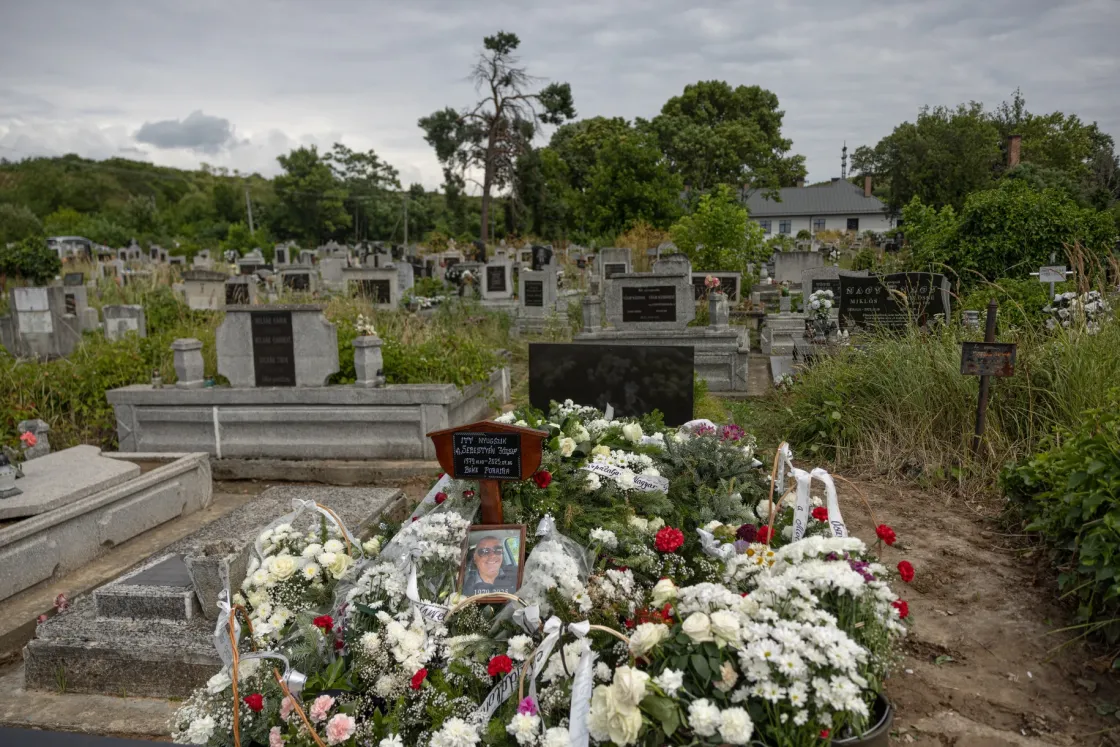
“Beating someone with iron pipes? Watching him crawl on all fours without calling a doctor? Come on!”
During our visit, in the Reformed cemetery in Berehove on Friday, a local man guided us to the grave of József Sebestyén, a Hungarian soldier from Transcarpathia who died on July 6, three weeks after being mobilized. The mound can be easily spotted from afar, as it is covered with so many wreaths that they are spilling over onto the neighboring graves. "Rest in peace," the headstone reads. Underneath the writing is a framed photo of Sebestyén smiling, while sitting in a car wearing sunglasses.
More than a week has passed since the death of the Hungarian man from Transcarpathia, but many questions still surround the tragedy, and exactly what happened in the days and weeks before his death remains unclear. Last week, pro-government Mandiner, followed by the entire pro-government media, reported that József Sebestyén had been beaten so badly during mobilization that he later died from his injuries. Two videos of him have also surfaced, in which he can be seen on all fours during mobilization or training. In one of them, he is visibly in severe pain, says that he is very unwell, and asks the paramedics watching him for help, but they simply respond by telling him to pull himself together and stand up.
The Ukrainian official statements on the case differ significantly from the claims made by the man's family and acquaintances, and the fact that a few days ago, when posting about the case on social media, Hungarian Prime Minister Viktor Orbán himself shared a photo that is not of József Sebestyén does not make clarifying the facts any easier. Political analyst and Russia expert András Rácz has also posted comments about the developments several times and he has regularly emphasized that, in addition to the otherwise appropriate steps taken by the Hungarian government, it would be crucial to ensure that the matter is handled with calm, as this would improve the chances of a thorough and professional investigation.
From the very beginning, it was obvious that the murky circumstances surrounding Sebestyén's death could worsen the already strained Hungarian-Ukrainian relations, which is why it is extremely important to thoroughly investigate the case: Did Sebestyén indeed sustain injuries after being mobilized, and was he mistreated because of his Hungarian nationality?
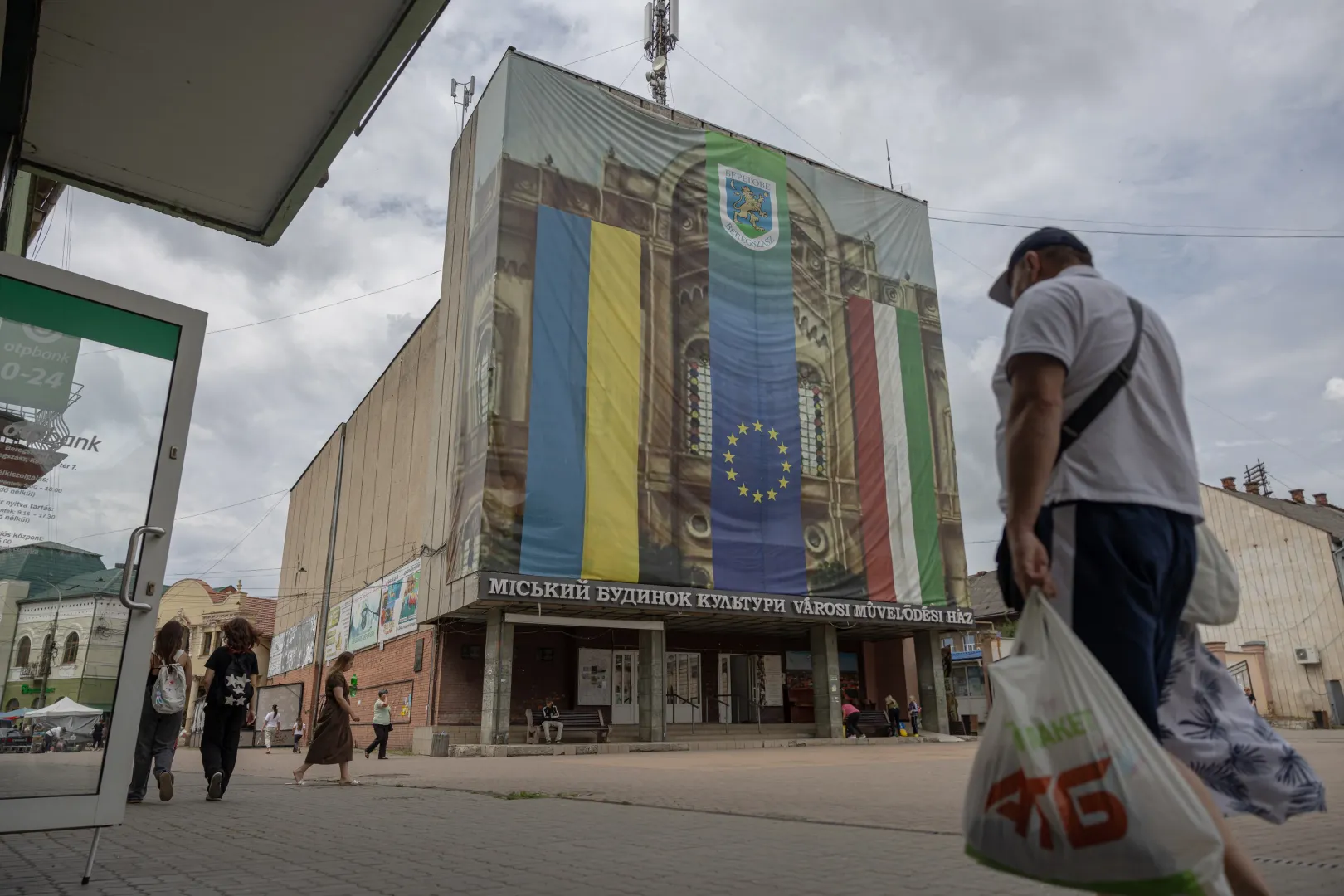
"Everyone is saying something different about what happened, everyone insists on their own version," a local Hungarian woman standing next to the main square in Berehove tells us. She had known József Sebestyén by sight and says that he was known as a kind, helpful and very funny man in the town. His willingness to help is also highlighted by the man who directed us to the cemetery. He said that he and the Sebestyén family had been neighbors for many years at one point. “He used to come around a lot back then. He was almost the same age as my son, and he often came to play at our house. Then I moved away, and so did Józsi. He was a normal guy, if you needed anything, you could go to him, he would always help.”
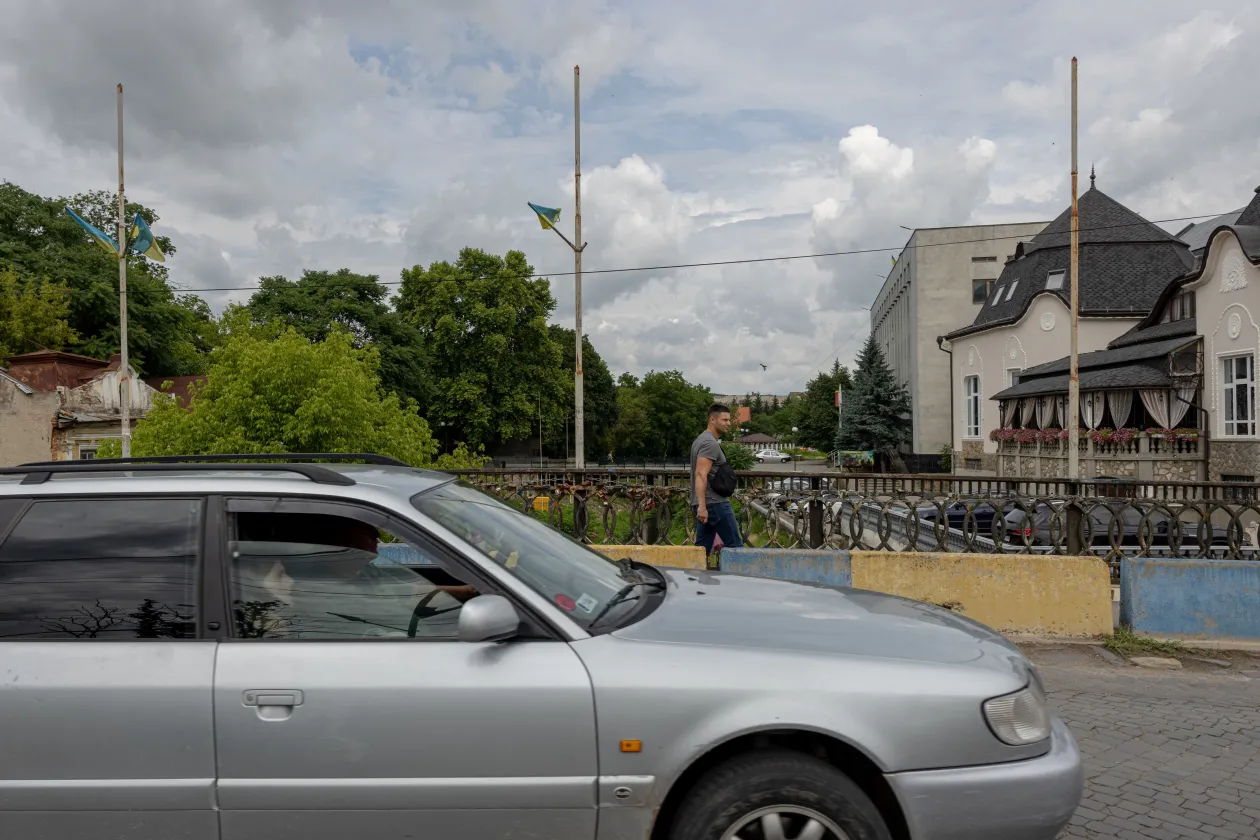
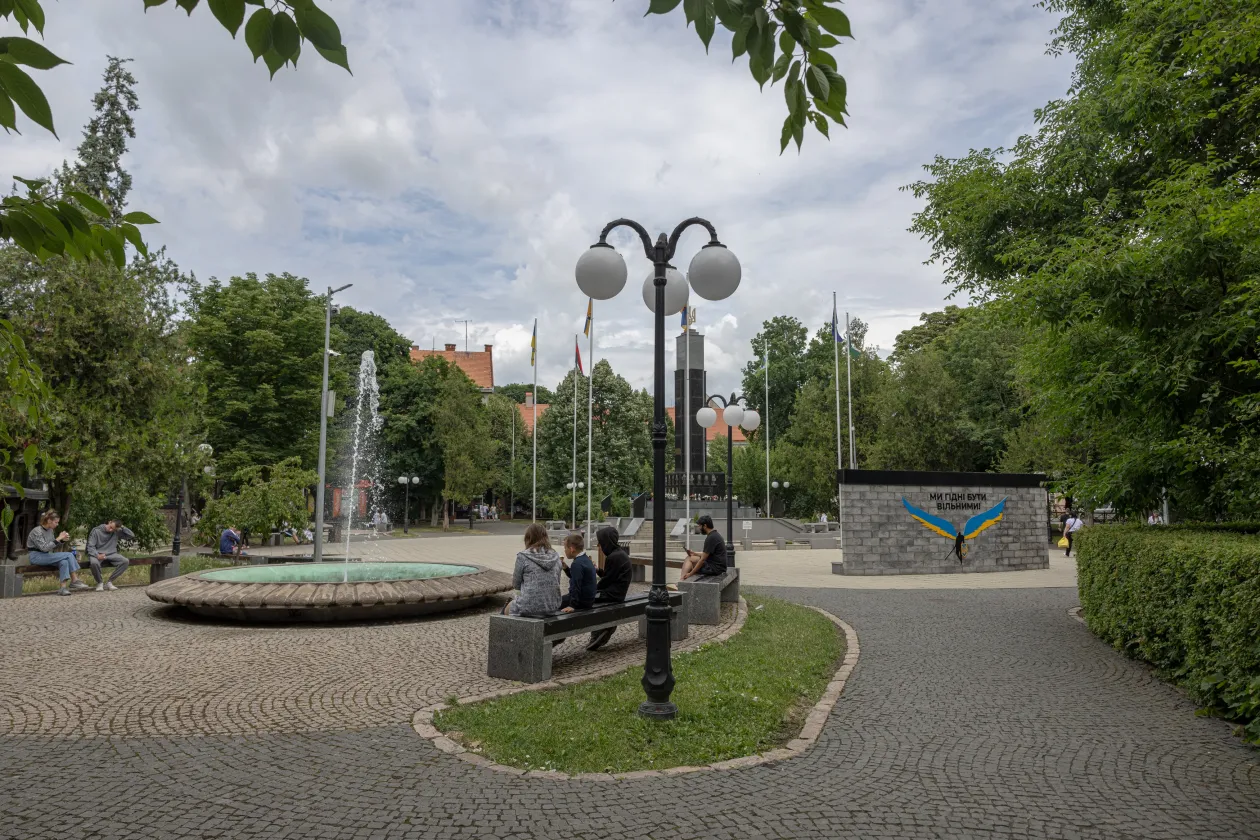
He tells us that he spoke to a member of Sebestyén’s family in mid-June, who told him that József had been severely beaten. He later learned from the same person that Sebestyén had died in the hospital. Our guide also heard that Sebestyén had been beaten by mobilization officers. He says his impression is that mobilization is getting stricter every day, and he believes the military police are becoming tougher. “I wonder how many people will go to the candlelight vigil in Budapest tonight,” he says as we walk through the cemetery gate. He says that there were about a hundred people at the funeral on Wednesday, and it definitely looks like more wreaths and flowers were placed on the grave after the funeral.
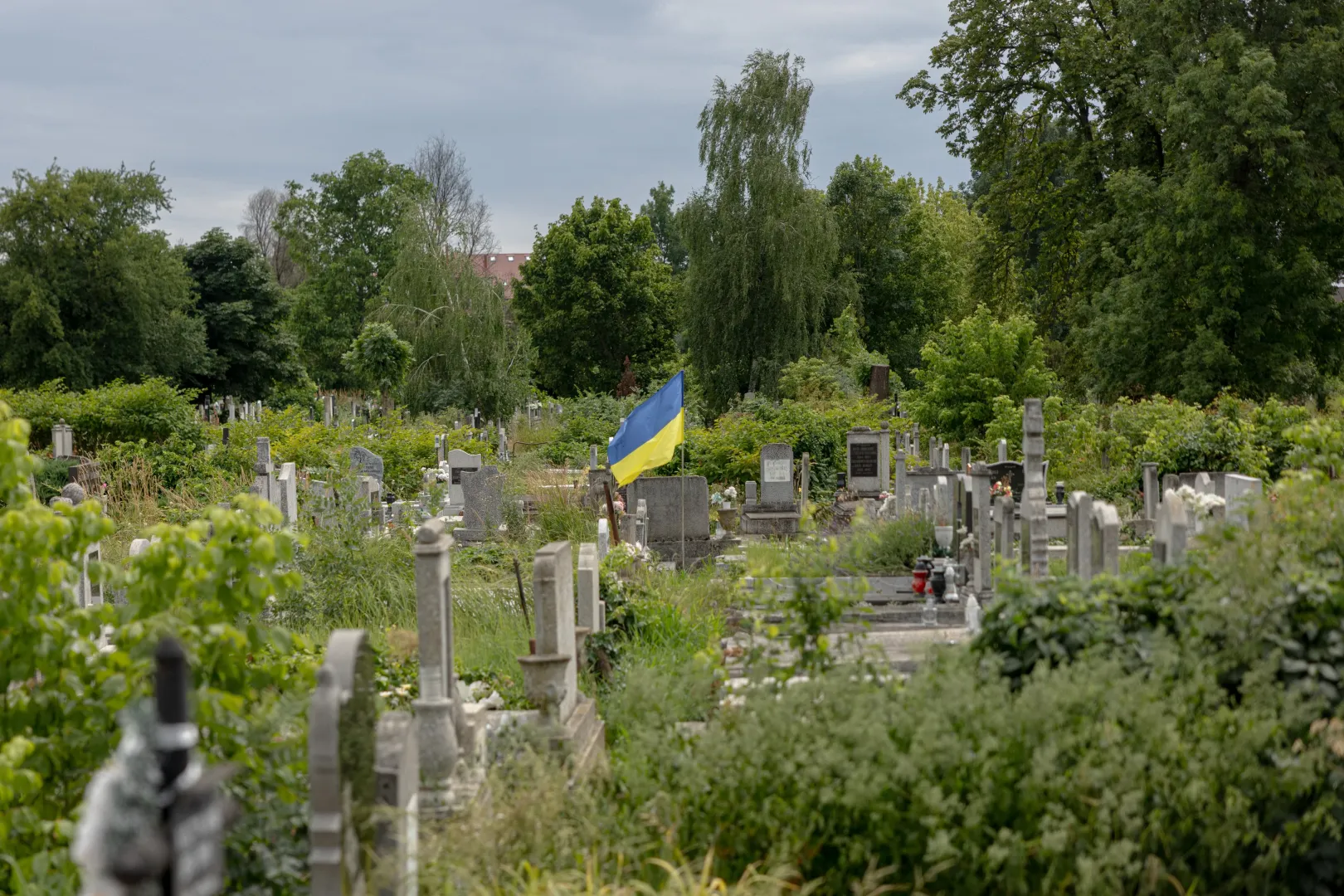
As we walk out of the cemetery, he says that he feels that in recent years the Hungarian minority in Transcarpathia has really been "picked on," and he is considering moving to Hungary. "It wasn’t like that here before, whether you were Hungarian, Ukrainian, Romanian, or Roma didn't matter. None of that. Everyone talked to each other. I had a Ukrainian friend, and when we talked, he spoke Ukrainian and I spoke Hungarian. It wasn't a problem." He says he gets along well with Ukrainians who have settled here after fleeing from the eastern part of the country. “Those who are from here, with them – not so much.”
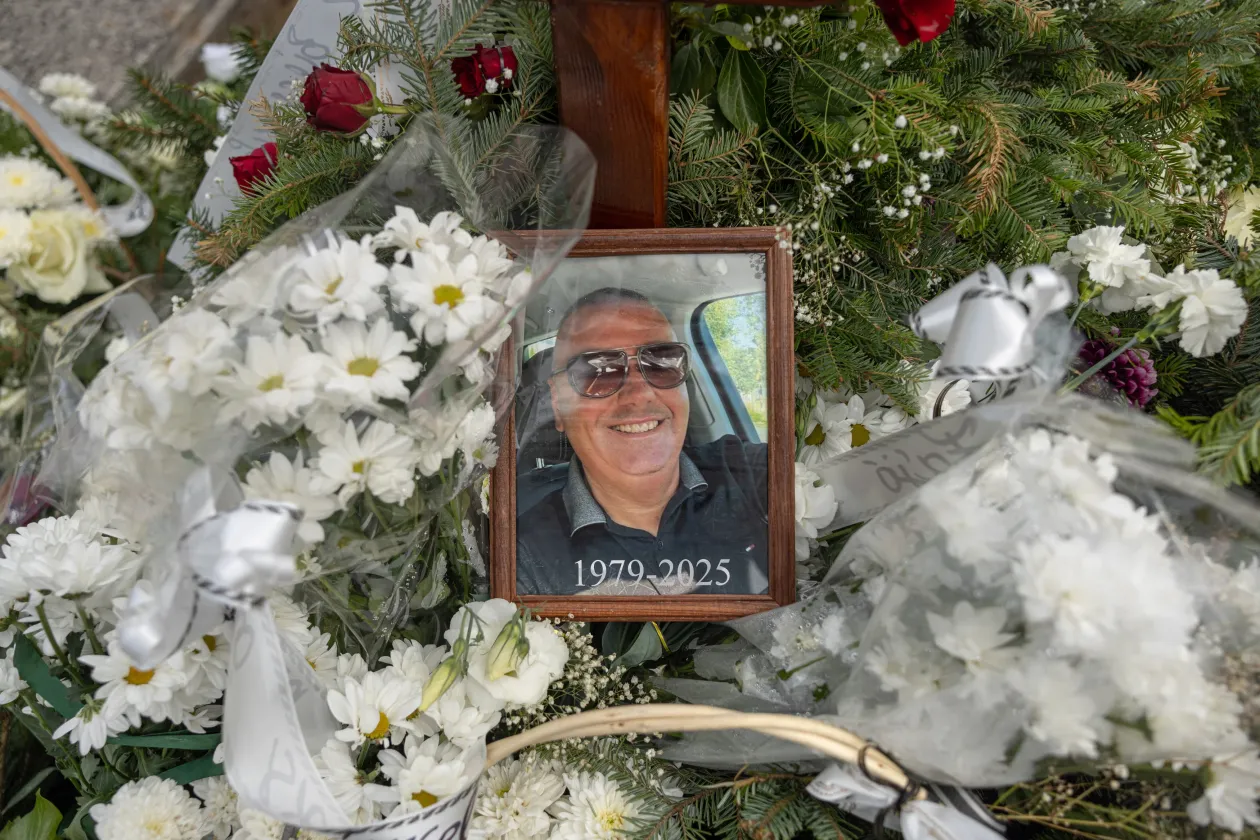
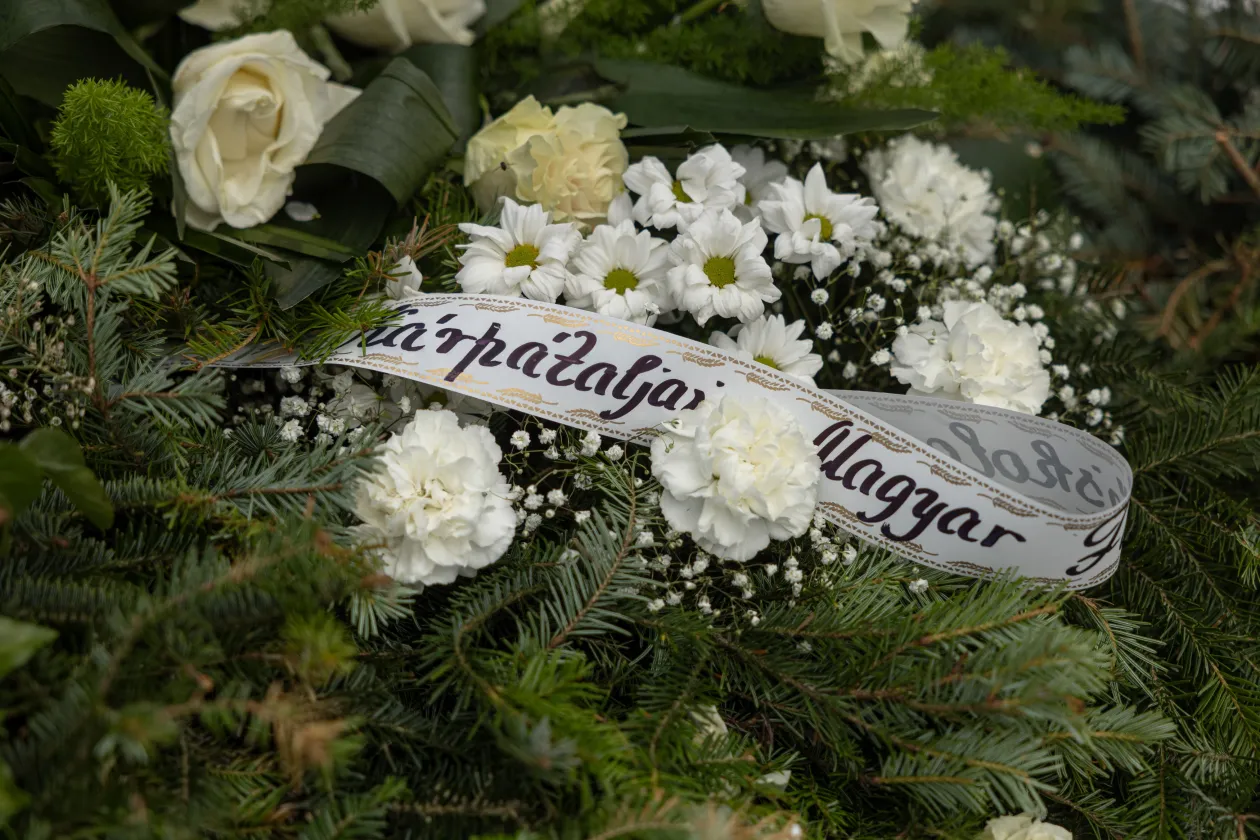
We were unable to find out whether other locals in Berehove are also sensing tension between the Hungarians and Ukrainians in the area, or perhaps between the Hungarian and Ukrainian governments, but being a journalist and a photographer from Hungary, we did experience it firsthand. Shortly after we said goodbye to the man who walked with us to the cemetery, an officer from the Ukrainian Security Service (SZBU) approached us after we had photographed the recruitment office. Using our photos as an excuse, he put us in a car and, along with a local Transcarpathian police officer, questioned us at length about who we worked for, what we were photographing, and why.
I'm a Trump supporter, but he is also talking nonsense
On Saturday morning, the market in Mukachevo feels much like any small town market in Hungary: locals are browsing through the fruit selection, others are feeling the fabric of colorful pants or examining suspiciously cheap Nike slippers. Meanwhile, the sellers who aren't busy with customers are fiddling with their phones or chatting with each other, while others serve three or four customers at once. At the main entrance to the market, however, several signs suggest that the war is being felt here too: a soldier in uniform withdraws cash from an ATM, and not far from him, two women are standing in front of a banner and a collection box with drones in their hands, collecting money for equipment for Transcarpathian units fighting in the war.
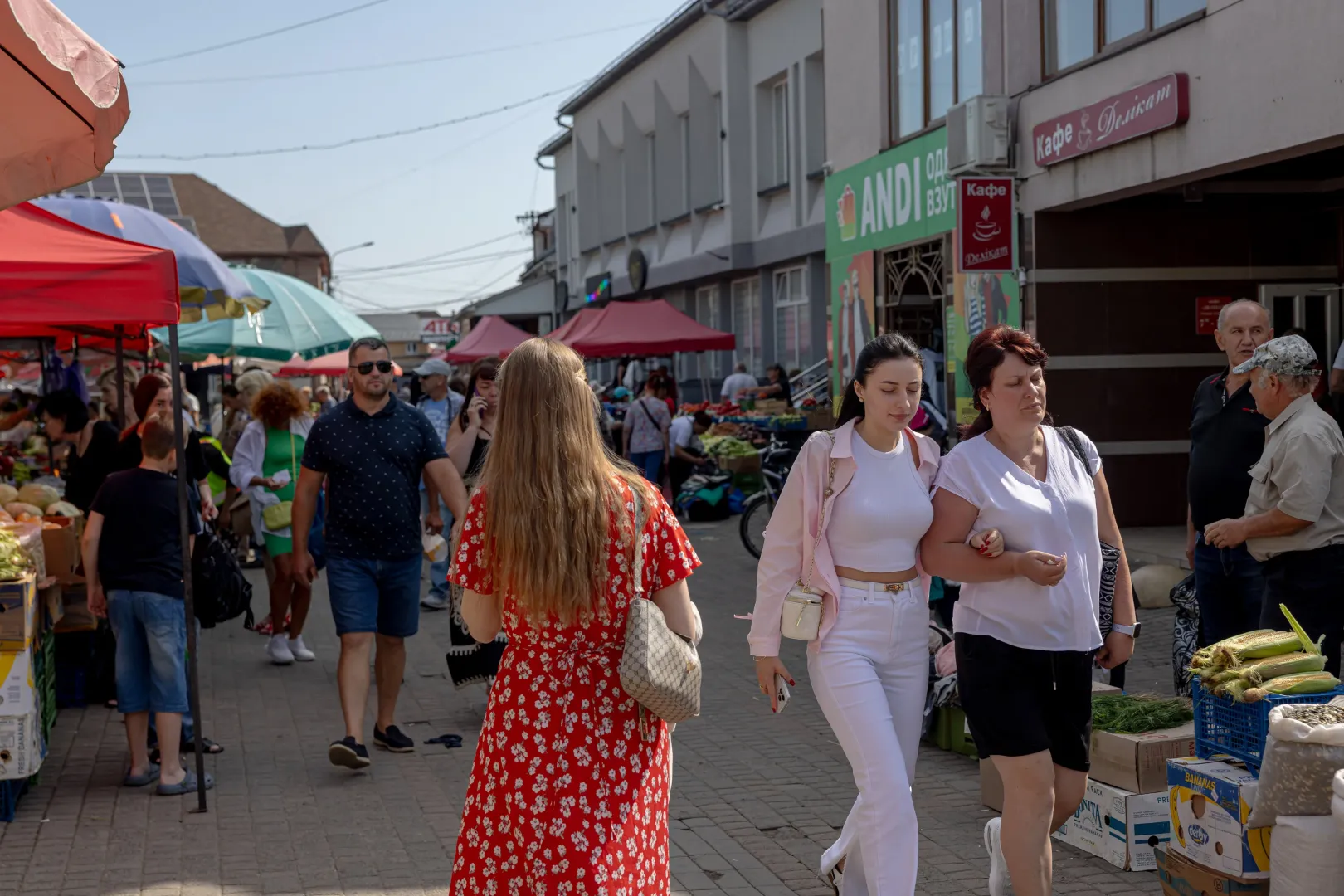
The news of József Sebestyén's death had also reached Mukachevo. "The Hungarian government is doing the right thing by standing up for the Hungarians here," a Hungarian man walking by the market with his bicycle says. "It's very nice of them, although there's not much else they can do from afar – we saw what happened to the guy from Berehove. The Hungarian government has condemned the incident, but I don't think there is much more they can do." He found out about Sebestyén's death on television, but believes that most people in Mukachevo have not even heard about the case. “The Ukrainians aren't going to publicize this. I don’t even have Ukrainian TV, I don’t read Ukrainian newspapers, I only rely on Hungarian sources. I watch Hír TV,” (a pro-government Hungarian TV channel – ed) he says.
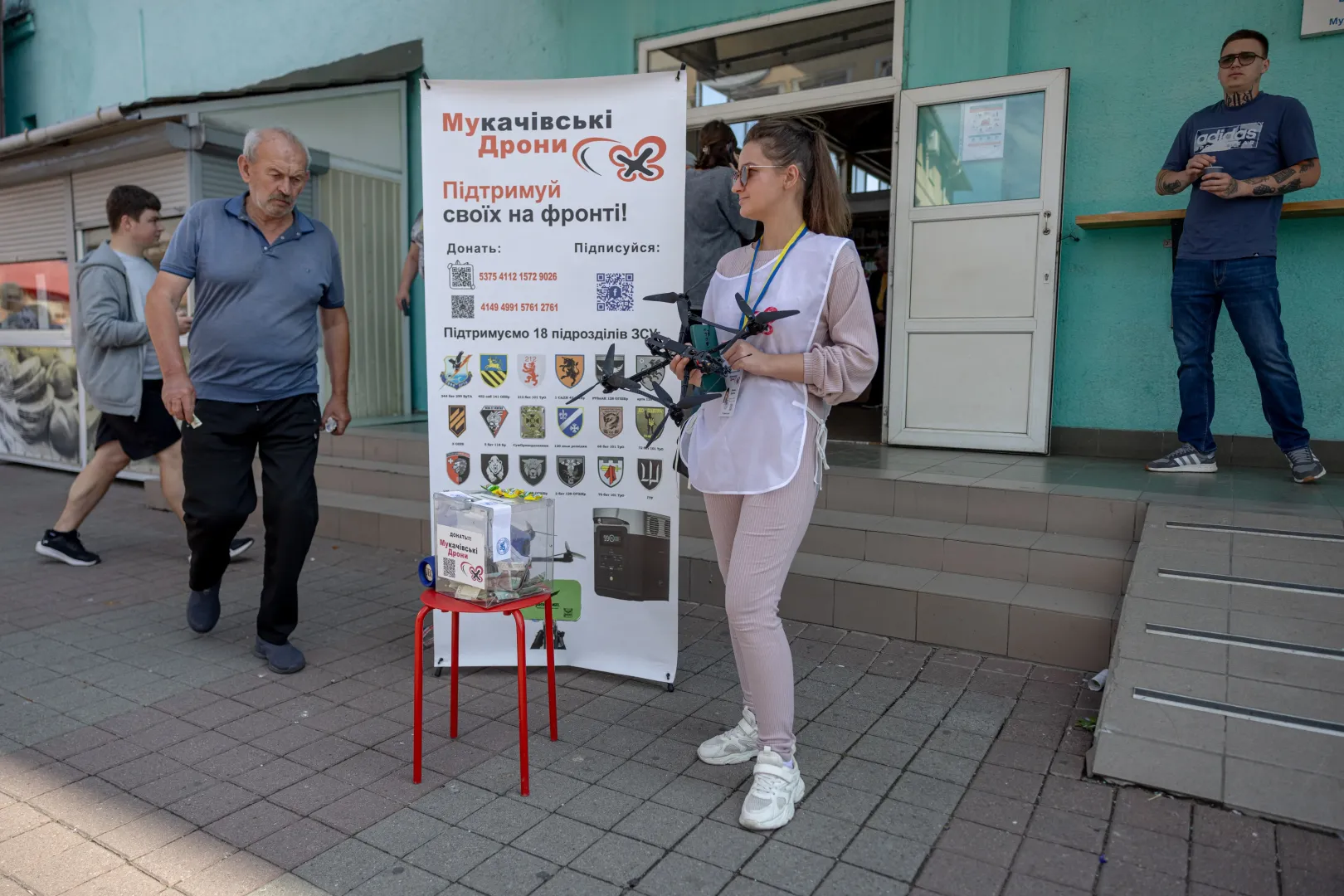
He has been following the tension between the Hungarian and Ukrainian governments in the news, but he does not feel that being Hungarian has become more difficult here than before. “I speak Hungarian everywhere, no one has ever said anything to me about it, they really don’t care. Sure, there are some idiots but here in Transcarpathia, the majority is accepting. However, he is acutely aware that there are far fewer Hungarians in Mukachevo than there used to be. “It used to be that I greeted every other person when I walked through town. Now I greet every hundredth person: the older ones have died, the young ones are in hiding or they left – if they were able to. And we are the ones that stayed.”
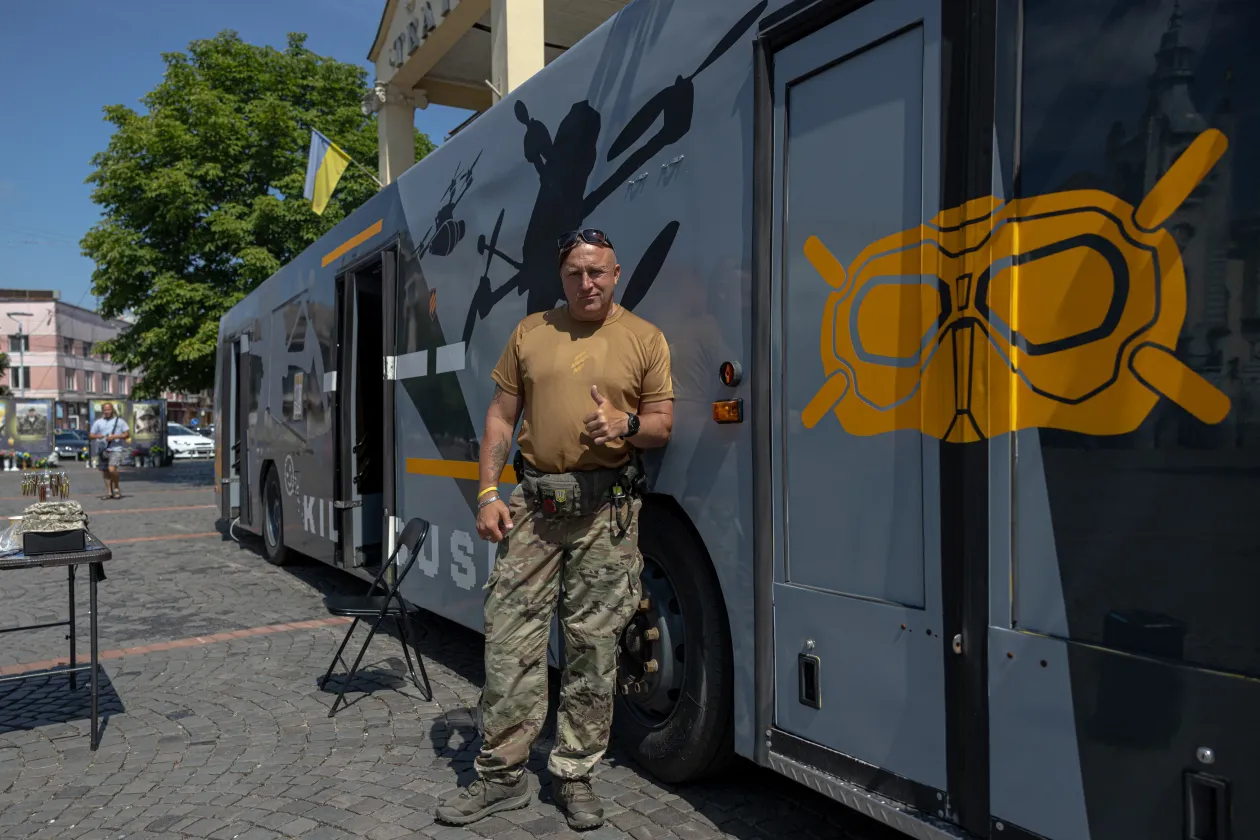
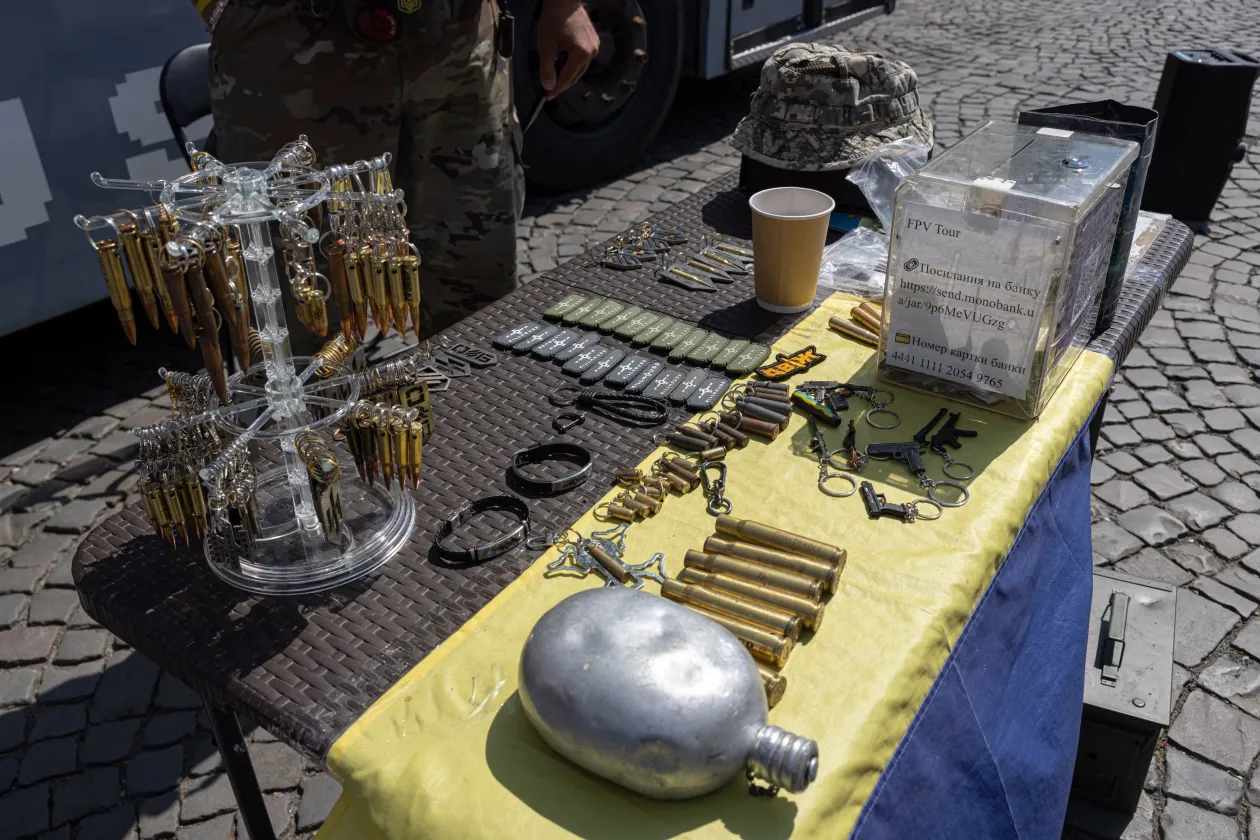
Commenting on the Hungarian government's recent campaign against Ukraine's EU accession, he says that he does not believe that Hungarians living in Transcarpathia would be better off if Ukraine, which is currently under attack from Russia, were to become a member of the EU. “We are taking life one day at a time and remain hopeful that this whole situation will come to an end sooner or later. But for now, this is merely hope, because from what I'm hearing, the war will continue to drag on. It's in everyone's interest: the European Union, Ukraine, and Russia. The Russians have set out to occupy as much territory as possible, and these guys are pretending they can defend themselves. They can't. That's just the way it is."
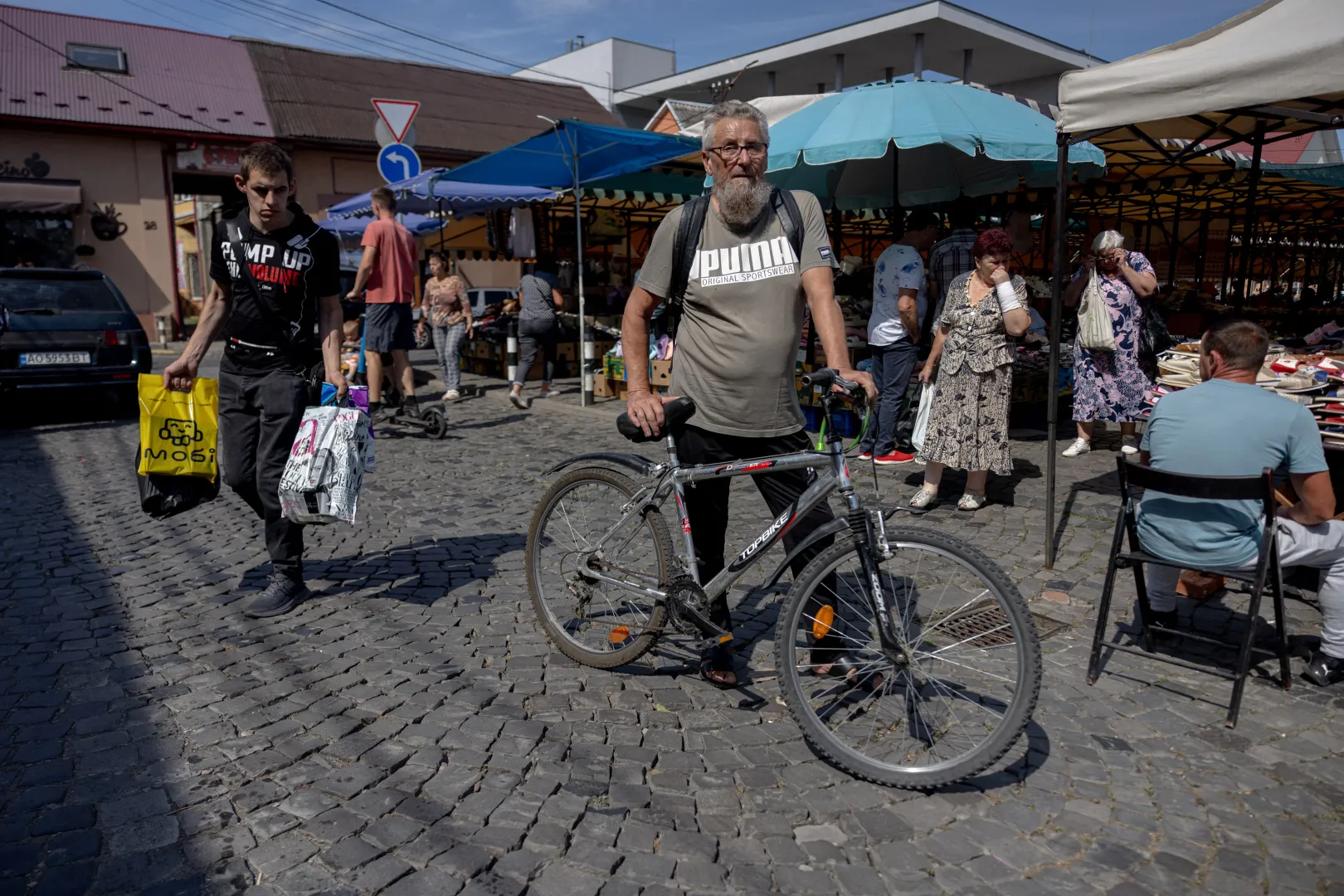
As for what the solution would be, he doesn't know, but he believes that the only way to achieve anything would be through American influence. "I am a supporter of Trump, I trust him, he is the one who still has a say in world politics. If he thinks this needs to end, then they will be able to end it." He believes that by being more open towards supporting Ukraine in recent weeks, Trump was just trying to send a message to Vladimir Putin, to show him that America could make things difficult for Russia. “That's how it works. I'm a Trump supporter, but the truth is that he is also very inconsistent, he says one thing today and something different tomorrow. That's his policy. But I trust him, I don't trust the folks here at all.”
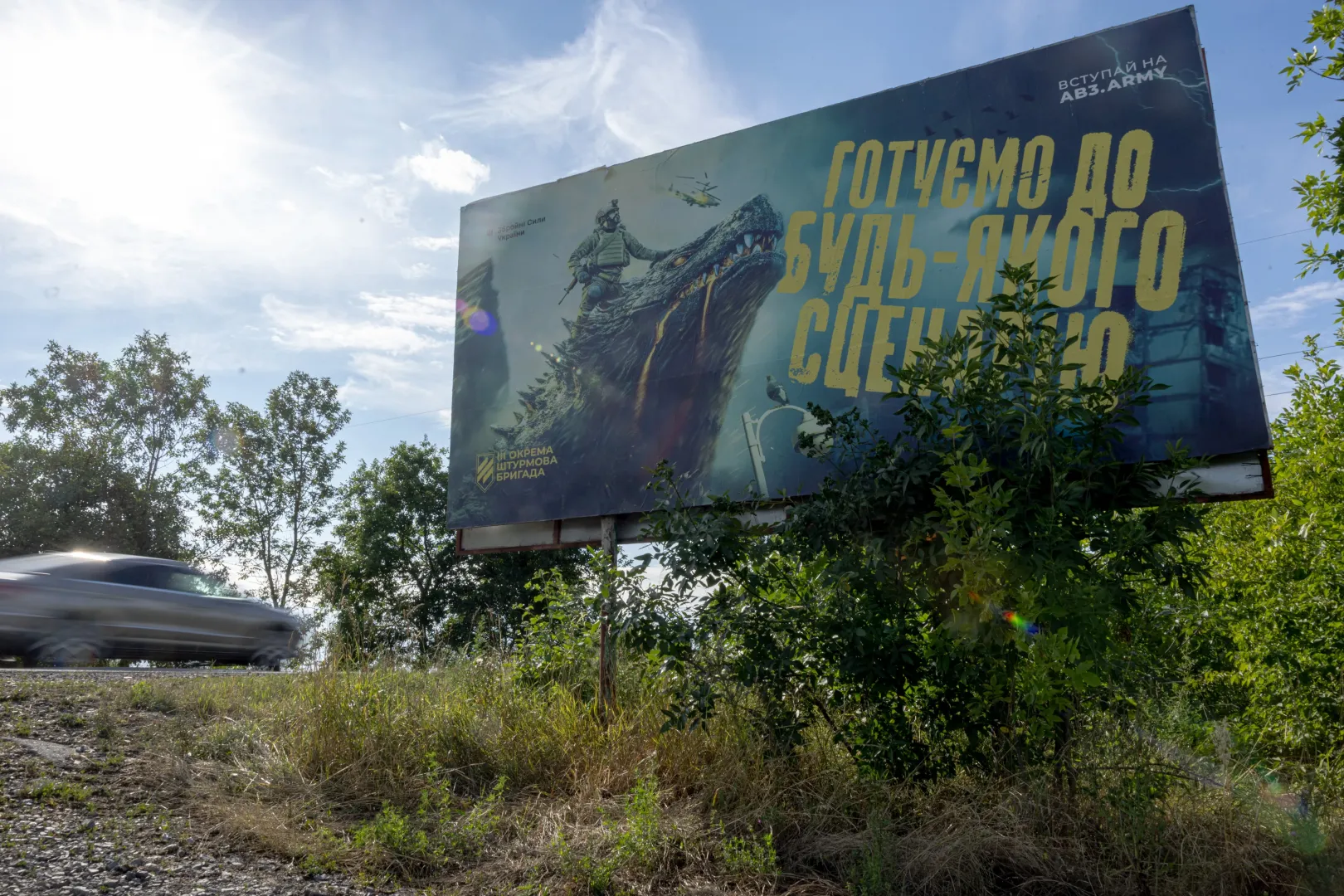
A few meters further, an older Hungarian woman buying fruit stops to talk to us. She also feels that being Hungarian in Transcarpathia is the same as it has always been; no one has ever given her a hard time for being Hungarian. She does not sense the tension between the two governments in her everyday life, but she has heard on television that the Hungarian government is opposed to Ukraine's accession to the EU, and she does not like Orbán very much. "I don't understand what all this is good for. There are still a lot of Hungarians here in Transcarpathia, it would be good if we could also be in the EU. But we are just ordinary folks, we have no say in these matters," she says, and after we say goodbye, she calls after us: “I really think that there are good people here in Mukachevo. The people of Transcarpathia are very good people.”
We have lived here peacefully for a thousand years, and that's how it's going to stay
It's likely that every child in Veliki Lazi and the surrounding region is familiar with the name of Ferenc Liszt. One of the greatest musicians and composers of his time used to play with the village's native son, violinist Count Nándor Plotényi, and today a plaque placed on the side of the Plotényi mansion in Veliki Lazi commemorates the two musicians. The mansion, which is now owned by the local government, operates as an art school, where nearly 300 children (including 150 internal refugees) attend classes after school to learn sewing, crocheting, painting, dancing, and music.
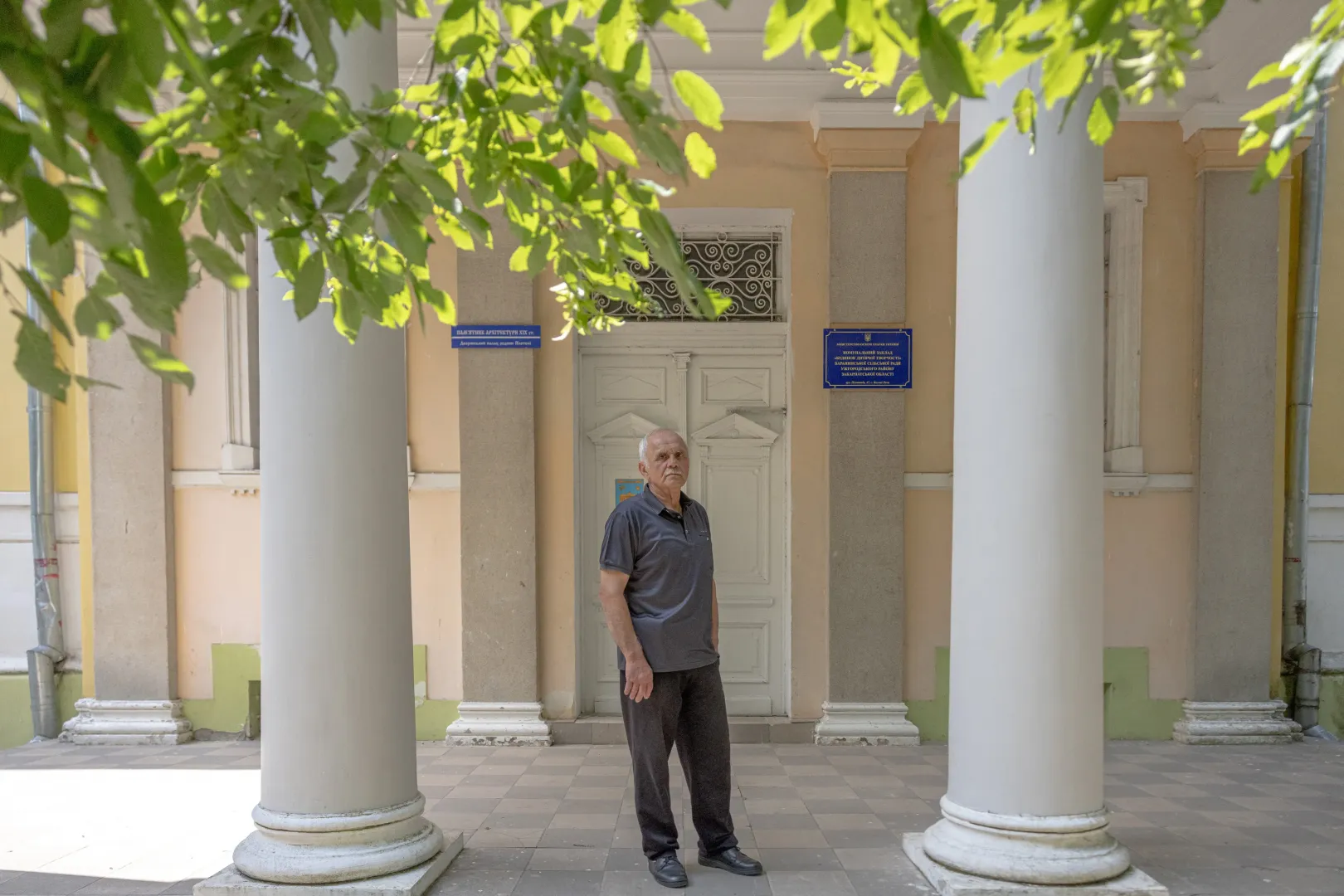
"As a Hungarian, it's very difficult for me to hear that the Hungarian government considers Ukraine an enemy," a local Hungarian man tells us in front of the school. “I can't help but think that all they are trying to do with this rhetoric is dig themselves out of the hole they've gotten themselves into. Here, of course, we get along just fine: all that matters to everyone is that we all live.”
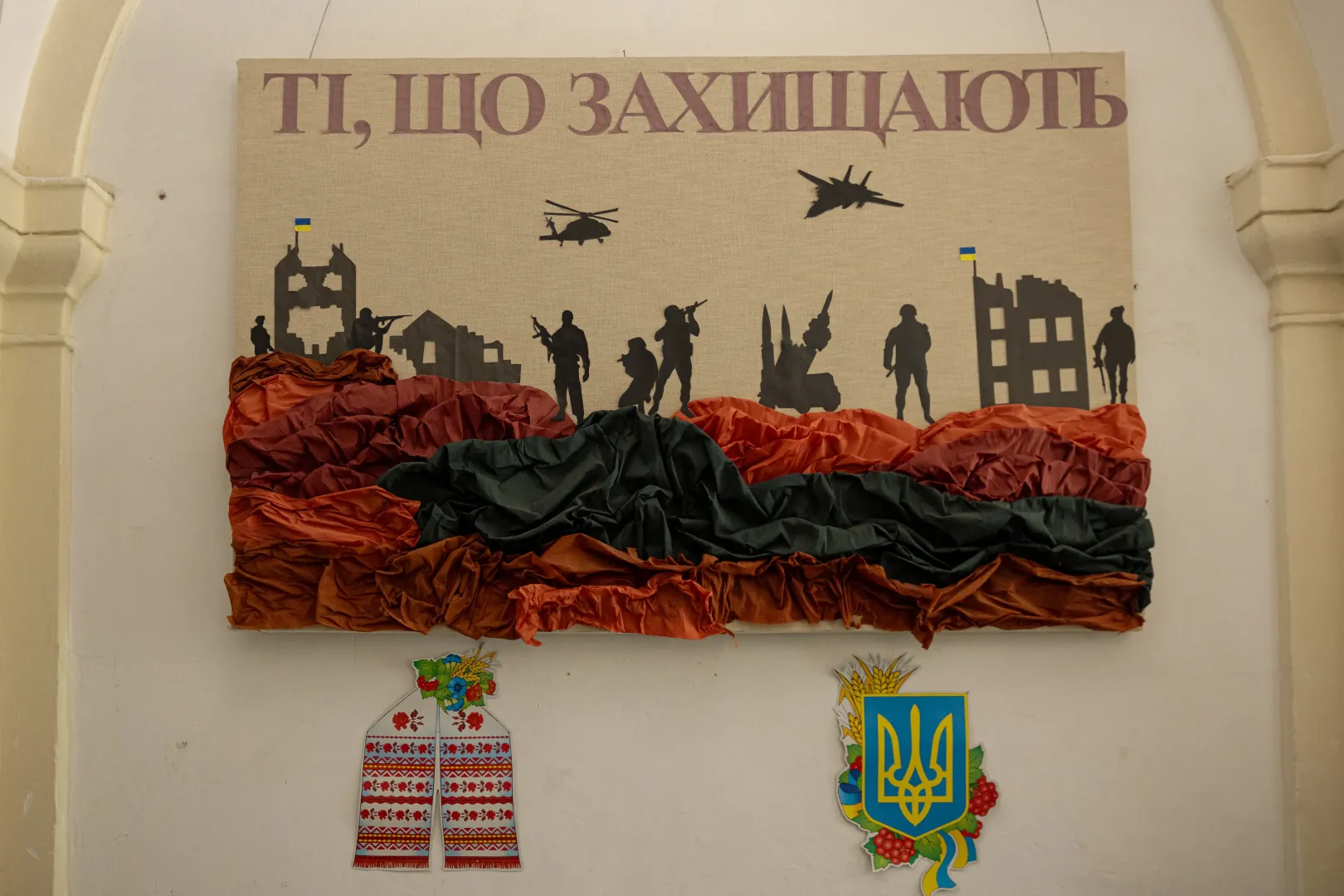
"We have always lived together in friendship, Hungarians and Ukrainians. We were practically one," Anatoly, who speaks Ukrainian but is of Hungarian descent and also lives in Veliki Lazi says. He believes that the Plotényi mansion is a good example of this: he says that there have been many attempts to sell it to wealthy investors, but the Ukrainian-majority village is determined to preserve the building and its Hungarian history. However, Anatoly believes that the war has somewhat changed the relationship: he feels that while the relationships in Veliki Lazi and the surrounding villages remain good, there is a noticeable chill, for which he blames both the Ukrainian and Hungarian governments.
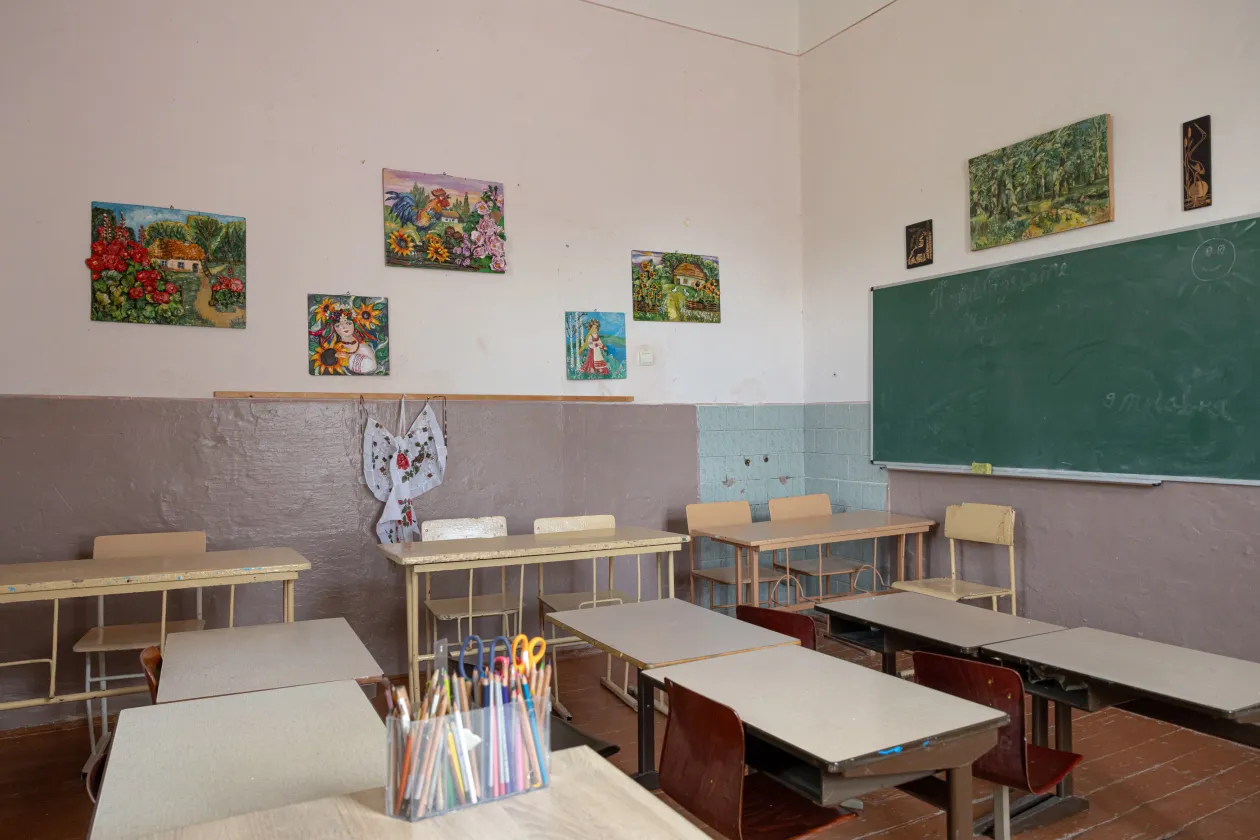
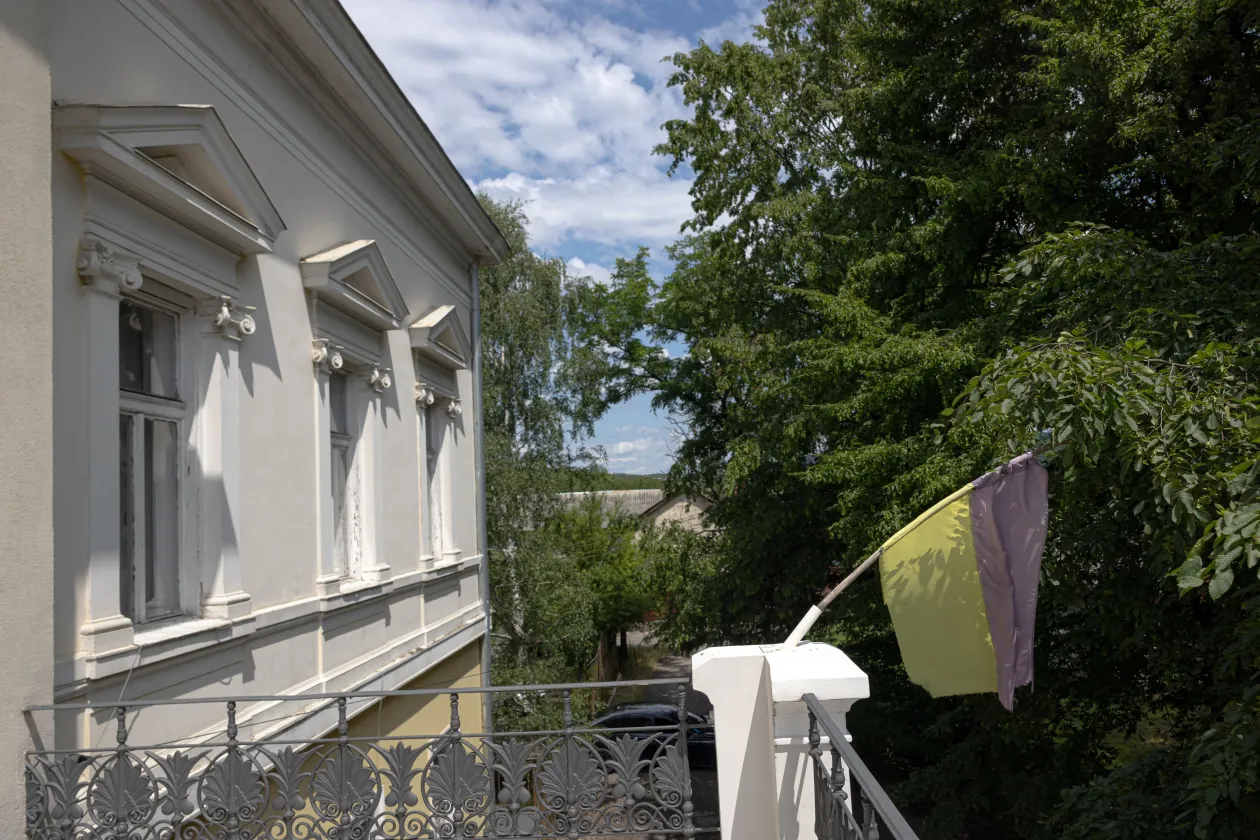
"From here, it seems that there are so many billboards of Zelensky in Hungary that Hungarians will be confused about who to vote for next year: Orbán or Zelensky," he says jokingly. He believes that the message of the billboards is that if Hungarians elect Péter Magyar, they will be choosing a leader like Zelensky and a future like Ukraine's. He does not agree with the Ukrainian government on everything, and believes that the large-scale war would not have started if someone else had been president instead of Zelensky.
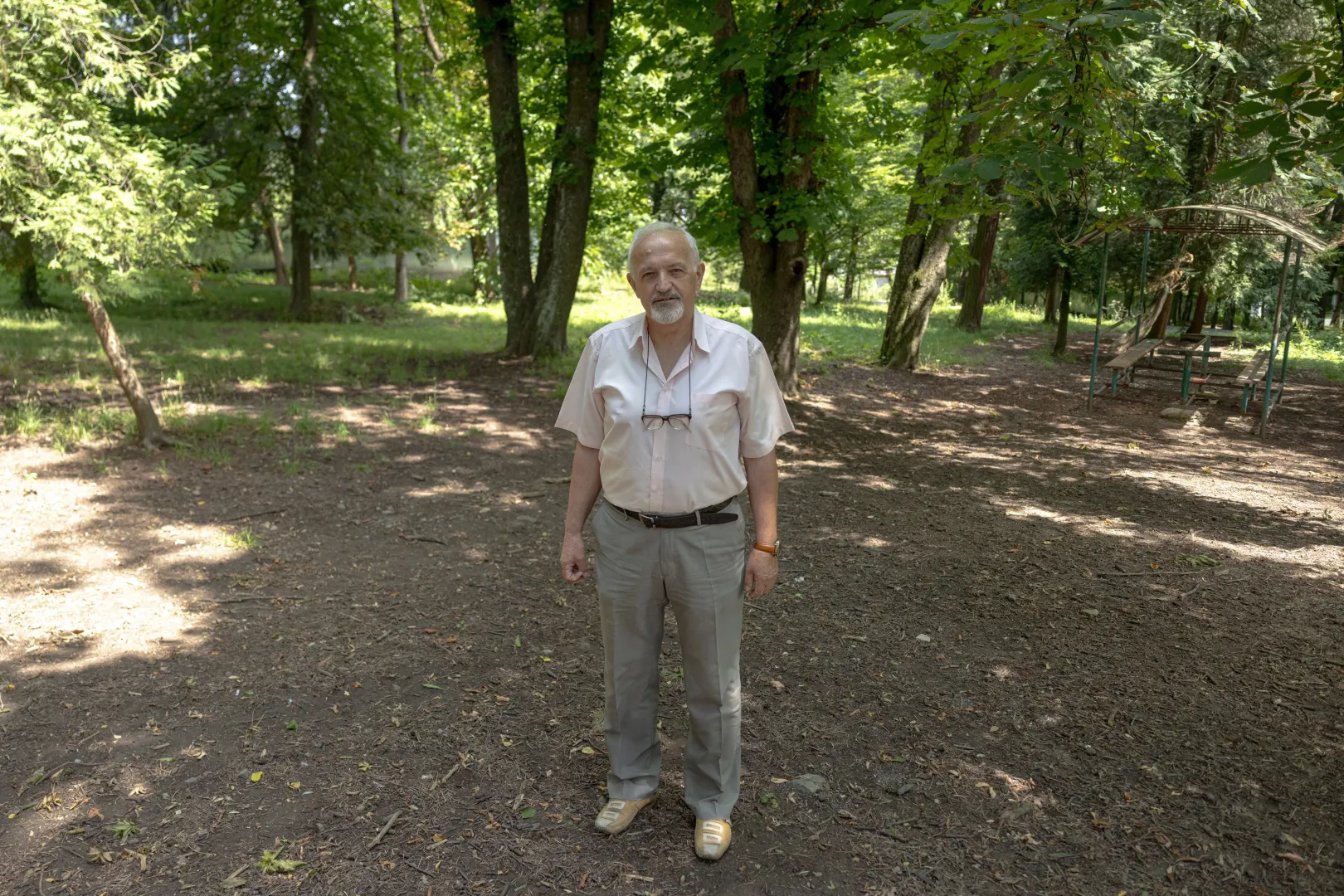
"It would be very important for the Hungarian and Ukrainian governments to find a common ground," Anatoly opines. “We have lived here peacefully for a thousand years without any problems, and it will continue to be so. If it takes Orbán and Zelensky meeting a hundred times, then they should meet a hundred times. But the tension that exists now must be resolved. I know that there are very good people in Hungary, and I sincerely wish for the country to find its way forward.”
According to statements from locals Telex previously spoke with, József Sebestyén was not hiding from the military police, but continued to work and run his guesthouse in Diida, near Berehove. According to some reports, he allegedly arrived there on 18 June after walking 30 kilometers from the training ground in Mukachevo to get home.
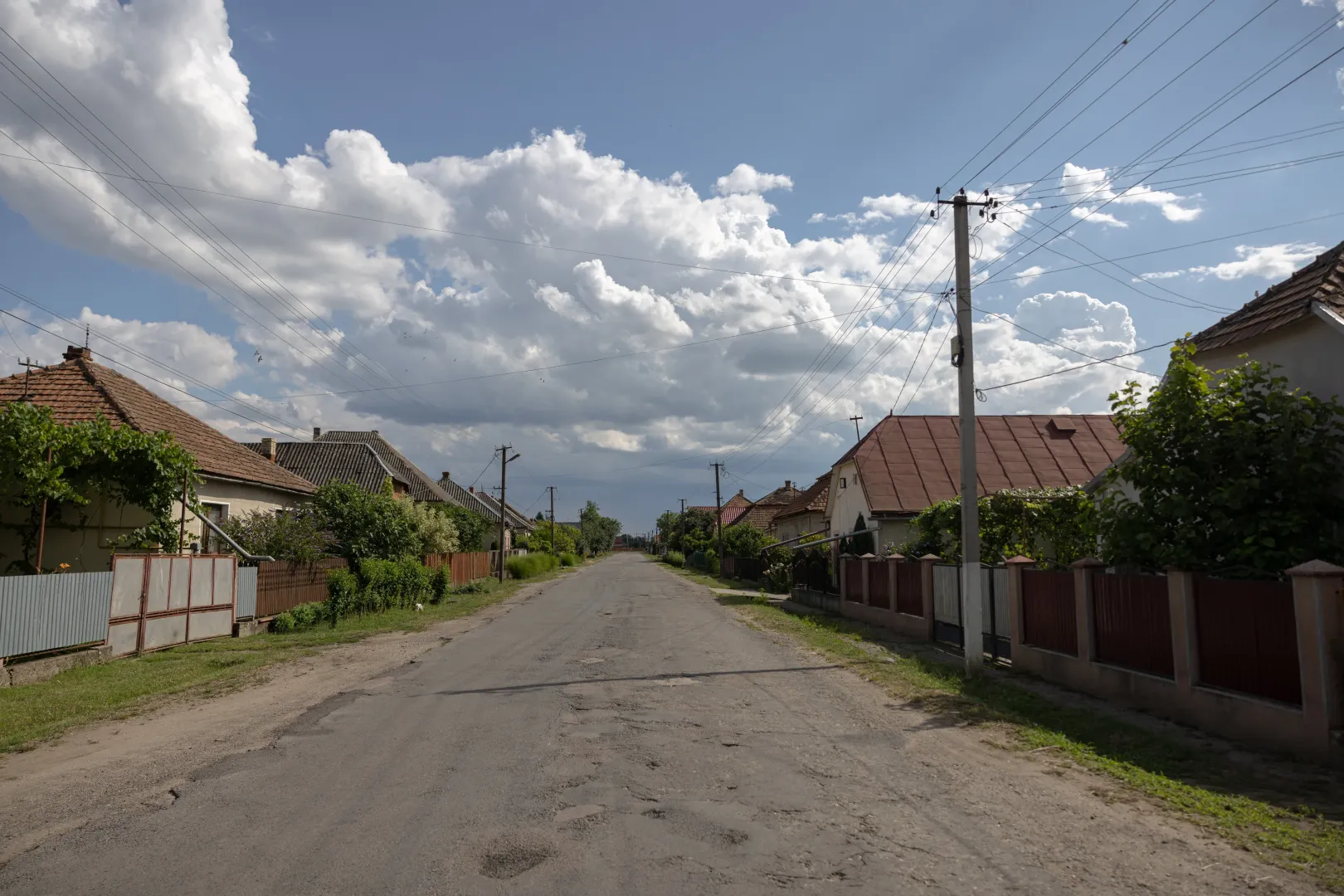
The village is quiet, with only a few elderly people sitting on benches in front of their homes. Seeing the approaching storm, they quietly hurry inside. When we ask people living in the upper part of the village, many of them do not even know that József Sebestyén had a guesthouse here, but as we approach the summer houses near the lake, more and more people are able to give us directions. Everyone we talk to in the village says they heard about József Sebestyén's death on TV.
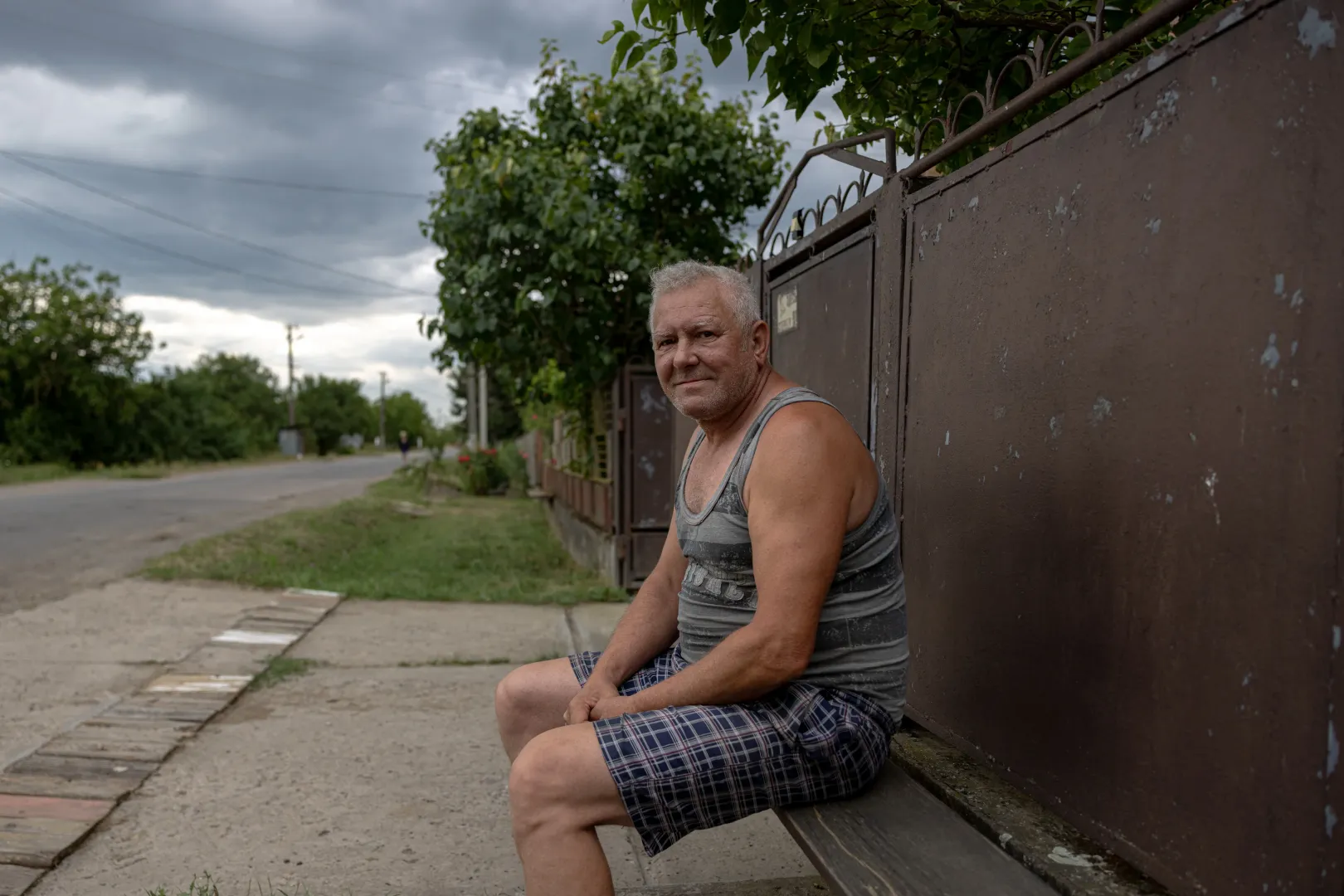
A local Hungarian man tells us that the young men are being taken away one by one and the surrounding villages have become completely deserted: those who are able to leave are going abroad – one of his neighbors had just managed to sell his house the day before. "It's terrible that this could happen," he says, and then it starts to drizzle, so he quickly says goodbye and disappears through the garden gate. A few minutes later, the main street is completely deserted, and the only thing that can be heard in the empty village is the sound of the hastily departing beachgoers' cars.